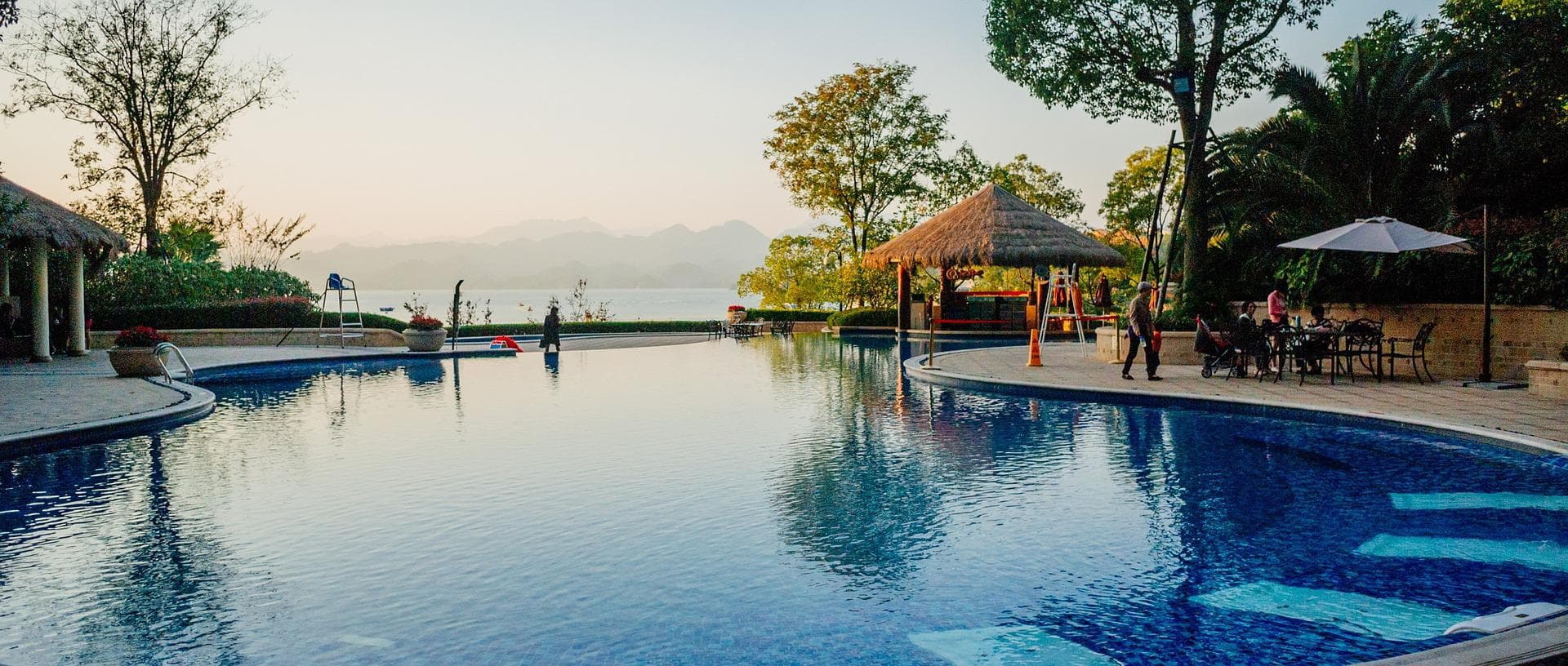
Being a swimming pool owner is a luxury but along with the undeniable perks, there are some
decisions to be made that can impact the health of the pool and of course its users. That is why
updating yourself with new knowledge is always a good thing. Considering that you are here
reading this article, you are already inclining towards getting a saltwater pool chlorinator, and
what a wise decision! But don’t just take our word for it. Read on and you will find some
compelling points that will help you quickly zero down on your decision.
What is a saltwater pool chlorinator?
Often referred to as salt chlorine generators or salt chlorinators, these fantastic pool additions
are used for easy pool maintenance. Their purpose to dissolve the salts in the pool that
generate chlorine, which is highly effective in keeping the water clean and hygienic, free of
bacteria, and keeps disgusting green mold at bay. These saltwater pool chlorinators are
becoming increasingly popular because they do the job effectively and are a more green and
eco-friendly option compared to their counterparts. They are not huge and bulky and gentler on
the skin of those who regularly use the pool.
How exactly does a salt water pool chlorinator work?
To understand the functioning of a saltwater pool chlorinator, we first need to understand the
different components that make up the system. A saltwater pool chlorinator consists of –
1. A control panel
This is the brain of the chlorinator. It controls the output power going into the salt cell. Salt water chlorinators come in various ranges, so the more expensive the chlorinator is the more settings
to manage the power.
2. The conversion cell
If the control panel is the brain of your chlorinator, the conversion cell is the heart, where the salt dissolved in your pool water goes through a process that turns it into chlorine gas, responsible for disinfection and cleaning.
3. A water flow sensor
This sensor ensures the proper amount of water goes through the unit to ensure maximum
productivity and maintenance. It also functions as a protective part for the generator. If water
flow is not constant and adequate, the generator will not convert as much chlorine as it should.
4. Salt
You will have to dissolve salt in your pool to get your chlorinator going. The amount of salt
depends on how big your pool is. The salt will take about 24 hours to dissolve fully prior to which the chlorinator can begin its converting purpose. The best part about this machine is that there is no need to add extra salt over time. Only if you are draining the pool for some reason will you need to add salt back into it.
How to choose a suitable salt water pool chlorinator?
– Depending on the amount of water your pool holds
To see which pool chlorinator is the best fit for you, you need to calculate the volume of water in
your pool. Then, based on which chlorinator meets the chlorine requirement for your pool, you
will have to go for that one.
– Depending on the usage of the pool
The usage is average if you are a family of four that spends their weekends at the pool. But if
you are a party animal that likes to entertain large groups of people at the pool, then the usage
is higher than usual. This means that the more you use the pool, the more chlorine your pool will
require. So get one before checking if it can meet your requirements.
Additional Read: Tips To Maintain A Saltwater Swimming Pool
Inline or Offline – what should you go with?
If your pool already has a system in place, for example, a filtration system or a heating system,
then you will require an inline chlorinator that will complement your existing setup. However, if
you are starting from scratch, you can install an offline chlorinator and build from there. The
choice is yours!
Reliability and Durability
Regarding reliability, these chlorinators are great as they really cut down on any physical pool
maintenance you’ll need to do. And in terms of durability, the only part of the chlorinator which
can wear off over time is the cell, which can be resolved with very efficiently by just investing in
some high-grade cells initially. Trust me they’ll be worth the money!
Conclusion
Getting a pool installed in your backyard is half the battle. The other half will come to an easy
end if you get the right accessories that guarantee the right conditions for your pool to thrive in!


